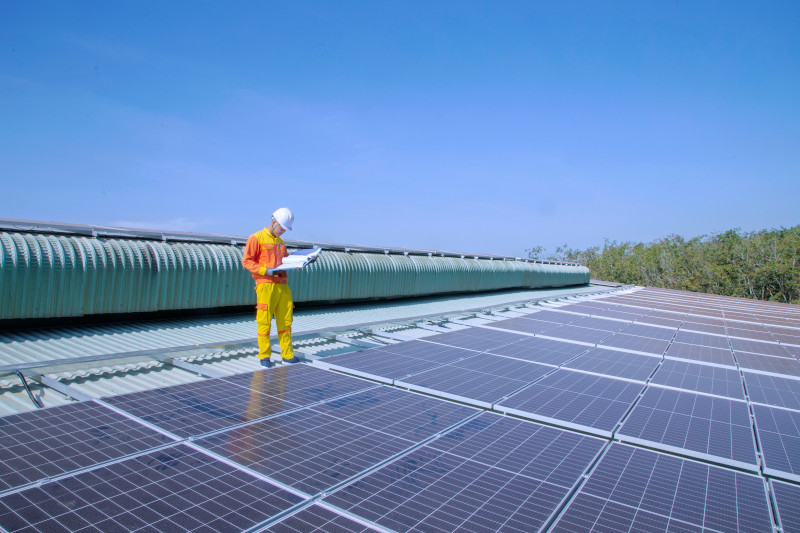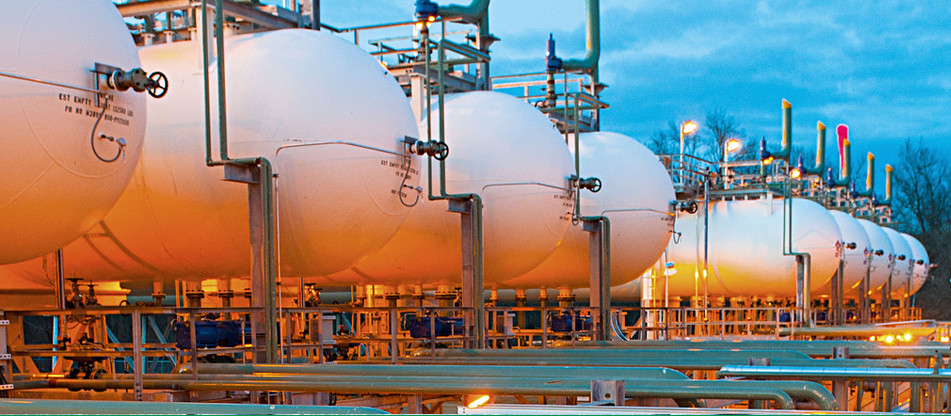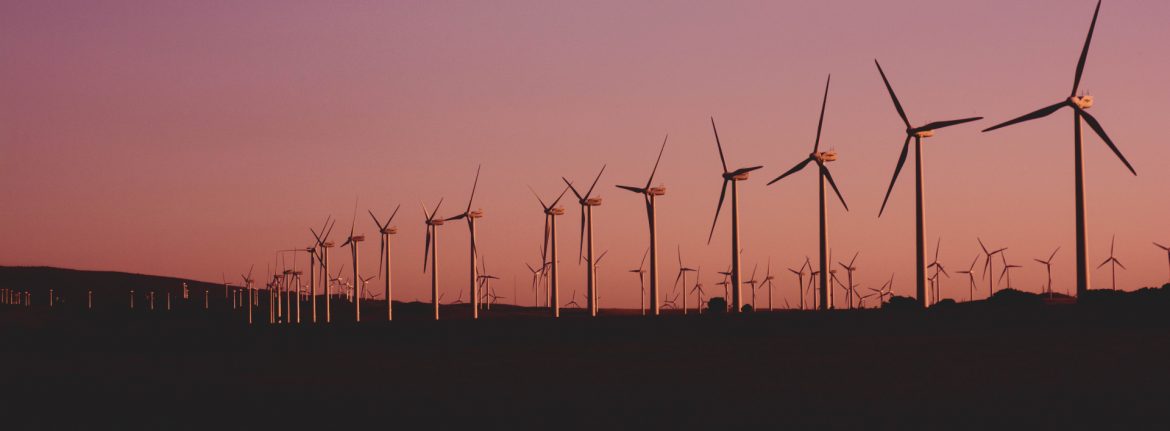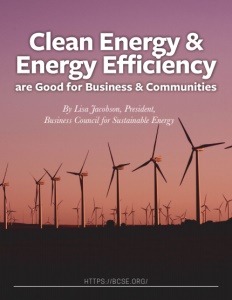Clean Energy and Energy Efficiency are Good for Business and Communities
By Lisa Jacobson, President, Business Council for Sustainable Energy
I live in Maryland, which was named as CNBC’s most-improved state for business in 2021. One of the top factors was the reliability of electricity in my state, where resilience investments have reduced average power outages to below two hours per year. Ours is among the 10 most densely populated states, and our economy is in the 10 least energy-intensive. Reliable, affordable, and efficient energy is a key value for consumers and businesses, and Maryland is delivering.
As President of the Business Council for Sustainable Energy (BCSE), I work with clean energy and energy efficiency companies to ensure that American energy policy gets results – that cleaner, cheaper, more reliable and efficient energy sources are available to all Americans (not just Marylanders.)
America can be proud of the progress our country has made towards a sustainable energy economy. The BCSE catalogues energy data in the yearly Sustainable Energy in America Factbook, and the numbers show improvements across the board. From a grid run on coal to one served by natural gas and renewables, the energy transition has cut power sector emissions by 40% compared to 2005 levels. U.S. investment in energy efficiency through formal frameworks has gone from just $4 billion in 2005 to nearly $15 billion in 2019. Over three million Americans work in these industries, keeping energy affordable and reliable. Our prices for power and natural gas remain low, reducing costs to families and helping businesses grow.

But America’s energy system can’t take a victory lap yet. America is lagging other advanced economies in deploying advanced energy technologies and expanding clean energy infrastructure. Federal clean energy and efficiency infrastructure policy could get us back on track to lead in these industries that today have $1.4 trillion in global annual revenue, and climbing.
Clean and efficient energy infrastructure is a priority for the economy, and for public safety. All critical infrastructure depends on the energy system, which is itself a vast network of public and private buildings, pipelines, transmission lines and generation facilities. Federal policy to support the continued growth of America’s clean energy sectors will secure our prosperity and safety for decades to come.
The United States has also committed to significant emissions reductions as a signatory of the Paris Agreement. The sixth Intergovernmental Panel on Climate Change basic science report, released on August 9 this year, drives home the importance of stopping climate change at 1.5 Celsius in order to prevent to worst impacts of climate change. Thanks to decades of research and innovation in clean energy and efficiency, there are a broad set of affordable, readily available solutions to get us the emissions reductions we need in the next decade and beyond.
What do we need to get there? Nothing short of a coordinated, all-of-government approach will let us achieve climate change prevention goals on the timeline called for by the scientific community, while maintaining America’s affordable, reliable energy services.

This doesn’t mean that the government is footing the bill for the energy transition, though, or that consumers should expect energy prices to skyrocket. Many clean energy and energy efficiency solutions pay for themselves over the course of their useful lifetimes. Public-private partnerships leverage private capital to build critical infrastructure. Tax credits for clean energy and energy efficiency have unlocked cheaper generation and lower emissions for customers across the country.
There is a massive opportunity to increase the resilience of the built environment while saving on energy costs through a comprehensive energy efficiency retrofit strategy of federal and state buildings and facilities. Performance contracting allows the government to pay for energy efficiency retrofits through energy cost savings, guaranteeing that efficiency investments pay off for taxpayers.
Clean, affordable, reliable energy will draw business not only to Maryland, but to all communities invested in cleaner energy. Many of America’s largest corporations, from Walmart to McDonald’s, have committed to sustainability goals, leading them to make business decisions based on where they can get the cleanest energy for the best price.
Communities across the country are already benefiting from clean energy job growth. Businesses are seeing energy bills fall with more energy efficient products and more affordable electricity and natural gas. America’s energy future is bright, and clean energy and energy efficiency businesses give us the tools to build it.
AT A GLANCE
Business Council for Sustainable Energy (BCSE)
What: A coalition of companies and trade associations from the energy efficiency, natural gas and renewable energy sectors.
Where: Based in Washington, DC
Website: https://bcse.org/



